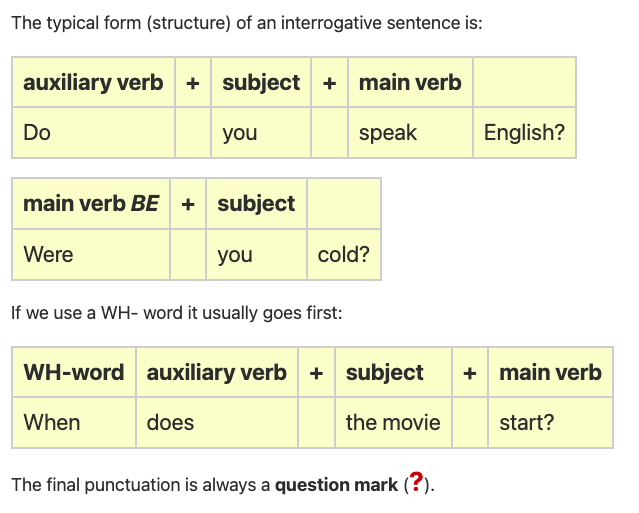Vocabulary
Reduce
Reuse
Recycle
plastic
encourage
protect
organization
climate
efficient
bulbs
energy
booklet
neighbor
neighborhood
recycle
recycling cneter
environment
victim
Fill in the blank – Jim and Strawberries
-
Jim (subj)
had no patience (谓语)
and
[often changed jobs] (谓语).
-
His parents(s) were(lv) worried (adj) [4]
[,and] // fanboy
they(subj) took Jim(ind obj) to Frank (obj) [3]
[, a wise man in their village]. // appositive phrase to describe Frank.
-
1
After listening to Jim’s ___________, // subordinate
Frank(subj) asked Jim(indirect obj) [to take a walk] (infinitive phrase as object) [with him] (prep phrase).
- plan(n) – Let’s listen to Jim’s plan.
- secret(n) – Jim has a secret.
- problem(n) – What is Jim’s problem?
- reason(n) – I understand Jim’s reason.
-
3
After doing this, [prep phrase] // planting the seeds, so Jim should be tired
Jim got ______________
, so
they(s) went(v) back (adv). // went back inside
- patient(adj) – Jim is a patient man.
- tired(adj) – The tired man takes a nap.
- honest(adj) – The honest boy returns the money.
- glad(adj) – We feel glad.
-
8
Jim was _________
- unhappy – The unhappy lion cried
- excited – The excited boy hugged his mom.
- funny – That guy looks funny.
- afraid – We are afraid [of monster]
9
After planting a seed, you have to [verb] [——].
-
10
He became a _____________ man.
- polite(adj) – The well-behaved kids are so polite.
- confident(adj) – Success creates a confident man.
- successful(adj) – A confident man is successful.
- friendly(adj) – My kids are friendly.
Tang shixu
Tang Shixu(s) is(lv) [ten years old](subj comp: noun).
He(s) lives(v) in(prep) a small village(obj) [in Guizhou, China] (prep phrase).
His parents(s) need(v) [to work in big cities] (infinitive phrase).
They(s) have(v) [to leave Shixu](infinitive phrase) [at home](prep phrase).
He(s)
spends(v)
[his free time](direct obj)
[watching short videos] //gerund phrase
[on his phone] // prep phrase
[at home] // prep phrase.
After breakfast, // prep phrase at head
Shixu(s) leaves(v) his home(obj) [for a special centre called 26 Cozy Harbor] (prep phrase).
He can [enjoy chess], [play with toys], and [take part in different kinds of sports activities].
He can [谓语], [谓语], and [谓语]。
To help (infinitive as subj)
take (v)
care of their children (object) // care (n)
[after school and during the holidays] (prep phrase),
it(s) built(v) this center(obj) [1].
Third Part – 25 pts
[Yichen and his father] (subj) [have climbed] (现在完成时) Nanshan mountain twice.
In July this year, [过去式]
they reached
the top of the mountain.
to describe
- I want to describe myself.
- The survivor(s) refuses(v) [to describe his experience] (不定时短语).
- It is hard + [to describe]. [3] + 不定时 //很难解释
- It is hard + [to describe my feelings]. [3] + 不定时短语 //很难解释我的感受
Yichen felt excited. “It’s hard to describe my feelings in words,” he wrote in his diary.
prepare(v) for
- The plane prepares [for] landing.
- The gynamst prepares [for] the performance.
- The soldiers prepare [for] war.
To prepare for this trip, Yichen did a lot of training.
Swimming (懂名词)
- He loves [swimming]. 名词在宾语
- [Swimming] is my hobby. 名词在主语
- I am terrible [at] swimming. 名词作为介词宾语
He(s) practiced(v) [swimming(懂名词) every week] 懂名词短语.
Climbing teaches them survival skills.
//在动词前面可以放副词。。呢true –> 副词 = truly
He(subj) truly? surprised(verb) me(obj).
Now Yichen has a new plan to reach the top.
will be – simple future
- It(subj) [will be](v) fantastic(adj).
- I(subj) [will be](v) successful.
- They(subj) [will be](v) tired.
It [will be] rocky(adj), but we believe he won’t give up.
email Essay
1) understand sad moon
2) suggest sad moon to join activities, honest.
* Junior high(subj) [has been](现在完成时) a challenge (obj) [for incoming students](prep phrase).
* [A new atmosphere, unfamiliar students, and a heavy workload] (subj)
[will make] (v)
you (obj)
stressed (object compl).
* However, there(s) are(v) ways(obj) [to resolve] (infinitive as adj) this.
* First, there(s) are(v) [many social clubs and activities] (you can join) (形容词 从句修去改时 宾语).
* [Participating in their programs and making friends in other social circles] subj (phrase and phrase)
解释:
Participating (懂名词) and 【making friends】 (懂名词 + 名词)
Participating [in their programs] = 懂名词短语
making friends in other social circles = 懂名词短语
短语 + 短语 = subj
[will give] – verb
you – indirect obj
[a sense of belonging] – obj
* You will feel [like you’re part of something bigger], and [thus, feel happier for it].
* Second, play more sports.
* You(s) can join(v) intramural sports clubs(obj).
* [The exercise and competitive play] = s
[will help] = verb
your body (object)
produce feel-good hormones (object complement)
* [Sweating and exertion]
[will also make] = verb
you = obj
eat healthier and drink more water (短语 and 短语 = 短语作为宾语补语).
* This(subj) undoubtedly(adv) leads(v) to(prep) a happier you(obj).
Finally, what you put out will be returned to you. So enjoy the little things, smile more, and look for the good in people. Your environment will return the same, and this cycle of positive interaction will create a more sociable and happier you.
